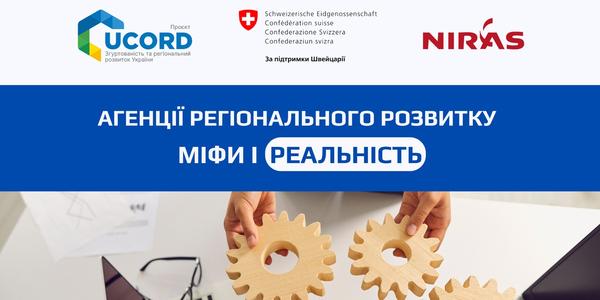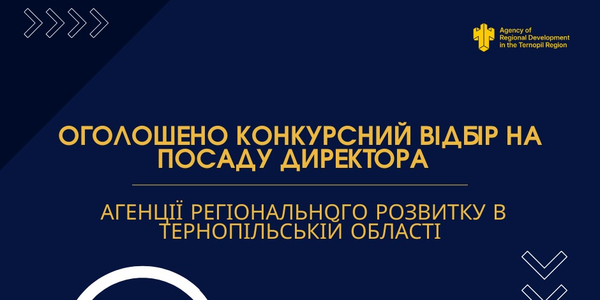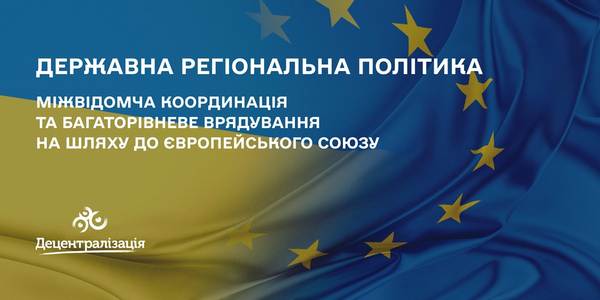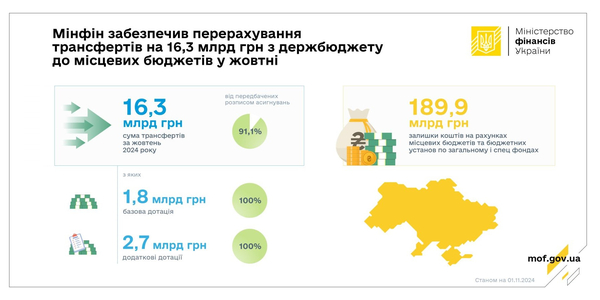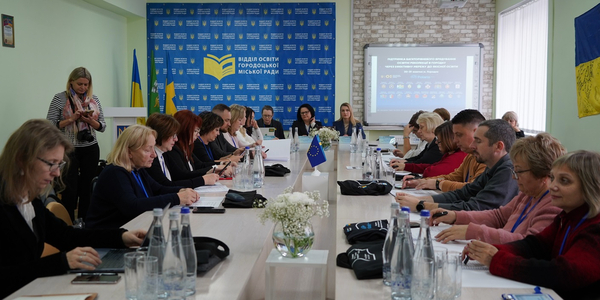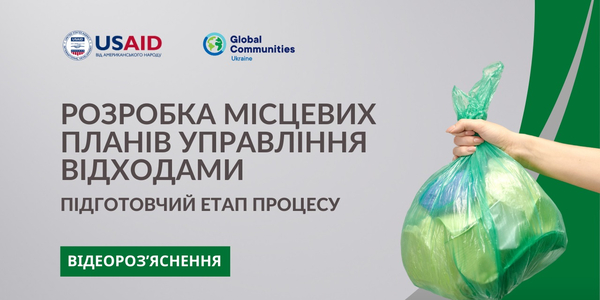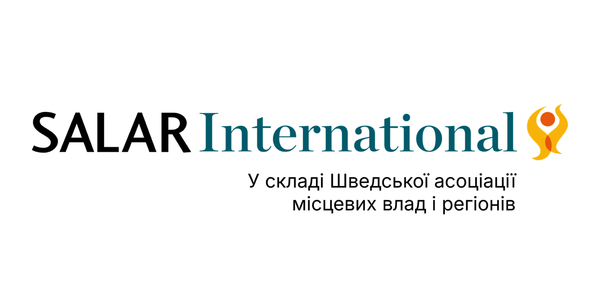From April 15 to 17, a delegation led by the Ministry of Economy of Ukraine visited the Eastern Netherlands to enhance collaboration between Dutch and Ukrainian businesses, facilitated by regional development agencies (RDAs).
Organized by the Regional Development Agency of Eastern Netherlands Oost NL and the Ukrainian Ministry of Economy, supported by the UCORD project, the visit intended to establish business cooperation agreements, network, exchange experiences, and sign memorandums of cooperation between Oost NL and 4 Ukrainian RDAs from Khmelnytskyi, Vinnytsia, Odesa, and Sumy regions. The participants were brought together through the involvement of the European Association of Development Agencies EURADA which facilitated introductions that led to establishing collaboration in regional policy between Ukraine and the European Union.

The Ukrainian delegation with partners during the Oost NL visit. Photo source: UCORD project
Nadiia Bihun, Deputy Minister of Economy and leader of the Ukrainian delegation, noted that in these times of cruel and unjust war, Ukraine acknowledges the importance of "collaboration over competition." Furthermore, Ukraine is seizing opportunities to deploy new technologies directly tested under wartime conditions. Therefore, the visit primarily aimed to forge connections with Dutch partners and businesses to foster the development of the Ukrainian economy.
Erwin Hoogland, regional minister of Overijssel province, affirmed that Ukraine represents a significant market that can broaden the Netherlands' export interests. This enthusiasm for collaboration with Ukraine was consistently confirmed by all partners, solidified through discussions that pinpointed specific ideas and solutions.
One such initiative involves using the Regional Development Agency of Eastern Netherlands as a platform to facilitate Dutch business entry into Ukraine. Wendy de Jong, director of Oost NL, highlighted this during a meeting of the agricultural platform organized as part of the delegation's visit.
Oost NL Agricultural Platform. Photo source: UCORD project
Known as a robust logistical and export partner, the Netherlands connects numerous sea and river ports with an extensive network of logistical routes across Europe. At the same time, Overijssel province is developing business clusters in the Agrifood sector and energy-efficient solutions.
That’s why representatives from these sectors, along with the regional development agencies of Khmelnytskyi, Vinnytsia, Odesa, and Sumy regions, participated in the visit. The regional development agencies are envisioned as strategic "entry points" that possess a regional vision and stimulate international business partnerships conducive to harmonious regional recovery and development.
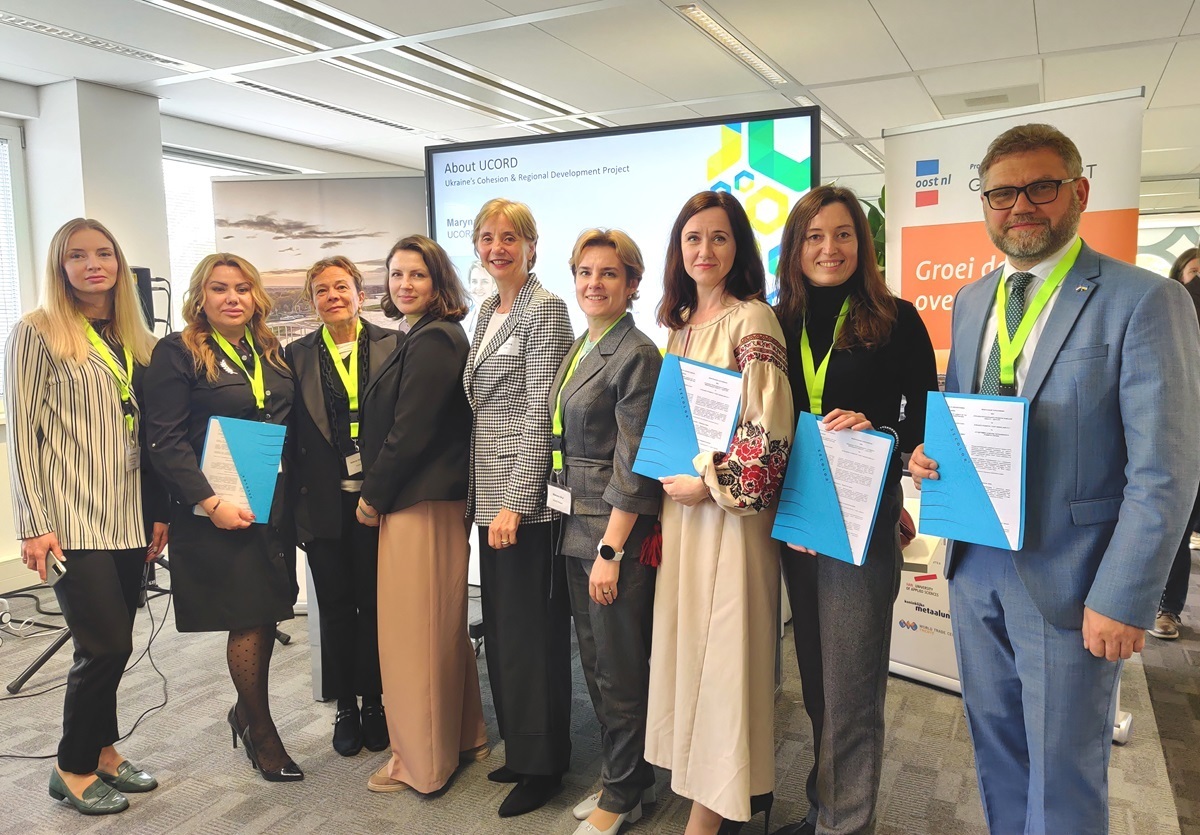 Representatives from Oost NL, regional development agencies of Khmelnytskyi, Vinnytsia, Odesa, and Sumy regions, and members of the Ukrainian delegation following the signing of cooperation memorandums. Photo source: UCORD project
Representatives from Oost NL, regional development agencies of Khmelnytskyi, Vinnytsia, Odesa, and Sumy regions, and members of the Ukrainian delegation following the signing of cooperation memorandums. Photo source: UCORD project
To ensure reliable collaboration and knowledge exchange, the Eastern Netherlands Regional Development Agency Oost NL and the regional development agencies from Khmelnytskyi, Vinnytsia, Odesa, and Sumy regions signed cooperation memorandums. This significant step will also bolster support from the Swiss-Ukrainian project UCORD, reinforcing the role of these agencies as leaders and facilitators in recovery, able to identify regional priorities and forge partnerships for project development and implementation that fully exploit Ukrainian regional potential.
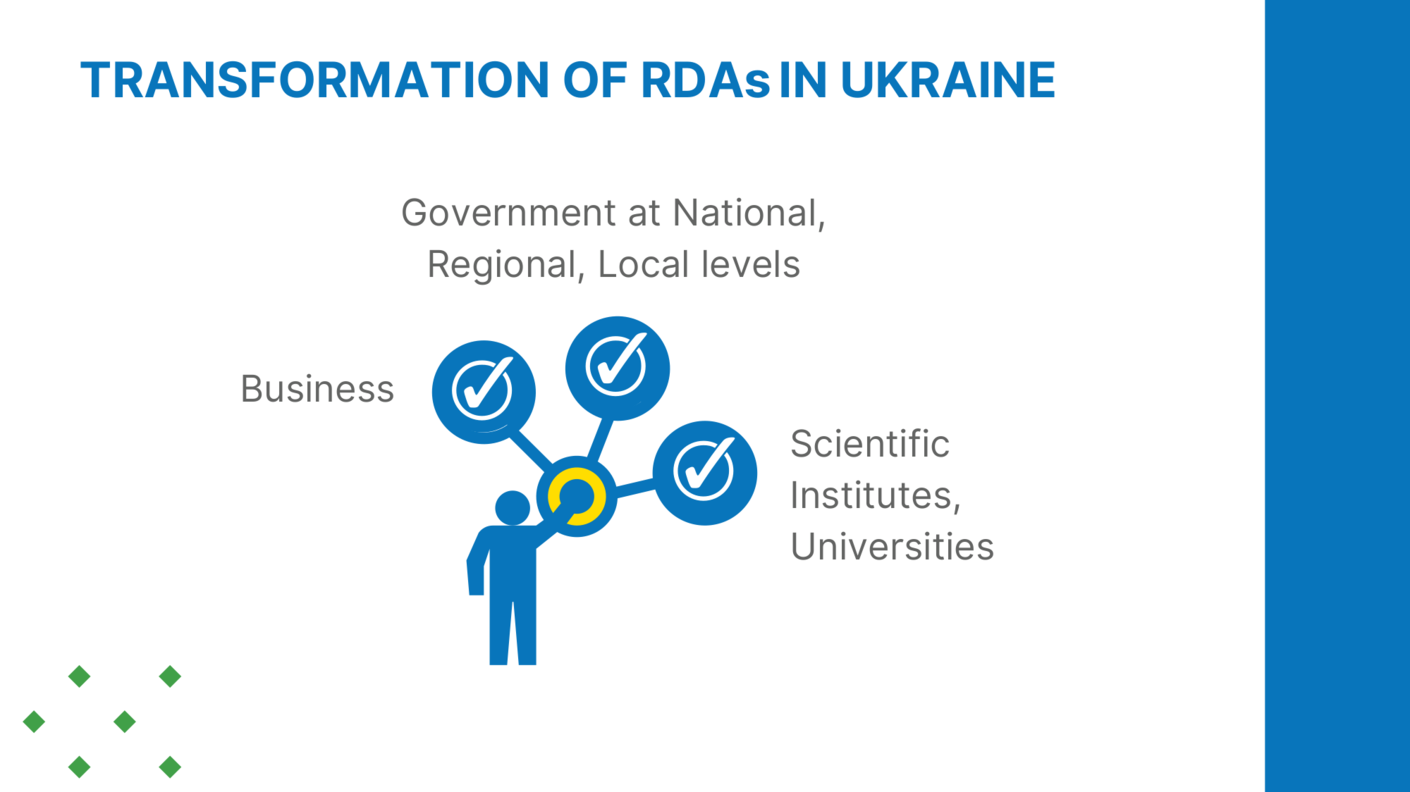
Presentation of government-business-science collaboration in regional development agencies, by Maryna Bryl. Photo source: UCORD project.
Maryna Bryl, leader of the Swiss-Ukrainian project UCORD, emphasized the transformation of Ukrainian regional development agencies and their role as interaction platforms between government, business, and academia. This collaborative model is a practical and comprehensive foundation for Ukrainian regions' recovery and development.
The Dutch "triple helix" model of interaction among government, business, and academia offers valuable lessons on complex partnerships. All Dutch entities engaging with the Ukrainian delegation are not only aware of this model but actively demonstrate its practical application:
- In Overijssel province, the successful energy-efficient transition at Hessenpoort Business Park exemplifies the adaptation of Dutch laws to meet climate challenges, the involvement of local authorities to facilitate business operations, and the proactive adaptation by businesses to the extensive needs of large industrial complexes.
- Overijssel also has developed comprehensive transitional energy policies, making residential solar panel use economically viable by balancing contributions to the general energy supply and peak-time usage.
- In Deventer municipality, the triple helix collaboration has yielded technological solutions involving young talent: the De Kien campus thrives with support from businesses, the province, the municipality, and Saxion University, optimizing the integration of civil servants, students, and young professionals in business innovation.
- The "Entrepreneurial Ukraine" Foundation cooperates with the municipality and the Dutch Ministry of Defense to run a training program for Ukrainian refugees. This program aims to clarify the Dutch business environment and regulations and provide the tools necessary for starting a business in the Netherlands, with ongoing support for eventually relocating it back to Ukraine.

The Ukrainian delegation at the Deventer municipality building. Photo source: UCORD project
For all established and planned triple helix projects, a critical piece of advice for enhancing the effectiveness of collaboration among government, business, and academia is to thoroughly understand the activities and missions of each participant. This foundational step is crucial for setting attainable goals and achieving the clarity so cherished by the Dutch and so vital for Ukrainians facing the challenge of stimulating economic growth amid war.

